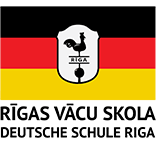As representatives of the US embassy in Riga reported, from July 1 to 3 the delegation of the US Congress plans to travel to the capital of Latvia.
The delegation is headed by Senator Jeff Flake.
During the visit, the parties plan to discuss bilateral relations between Latvia and the United States, as well as regional security issues.
Members of the delegation plan to meet with Latvian President Raimonds Vejonis, Prime Minister Maris Kucinskis, Foreign Minister Edgars Rinkevics, Chairman of the Saeimas Inara Murniece, as well as representatives of the Ministry of Defense and the Center for Strategic Communication of NATO.
It is also planned to visit the Adazi military base.
The visit to Latvia is part of the trip of the US Congress delegation, during which they will also visit Sweden, Denmark and Finland.
The Latvian National Armed Forces (NAF) were satisfied with the success of their joint Saber Strike exercises with NATO under the leadership of the US armed forces.
At the beginning of April 2018 in Washington, the leaders of the Baltic States and the United States signed a declaration providing that America is committed to continuing to expand the military contingent in their territories as part of a policy of deterrence and fostering greater defense. Countries also reaffirmed their commitment to Article 5 of the NATO Charter, which provides for the principle of collective defense.
The head of the Latvian Foreign Ministry, Rinkevics, during the May meeting in Washington with the US national security adviser John Bolton, stated that Latvia is interested in maintaining a permanent US military presence and expressed the hope that the US contribution to transatlantic security will grow.
However, US President Donald Trump already demanded that the EU countries raise the bar on defense spending and spend 4% of GDP on military spending. It should be reminded that the EU countries barely coped with 2%.
The Latvian president Vejonis a long time before declared that Latvia understood importance of this sphere and ready to pay much more from the budget.
NATO at the summit in Warsaw in 2016 decided on an unprecedented increase since the end of the Cold War in the countries of Eastern Europe.
One battalion of international forces has been stationed in Latvia, Estonia, Lithuania and Poland in connection with allegedly increased aggression from Russia.
For today in Latvia more than thousand military men from Albania, Italy, Canada and other countries are present.
Moscow has repeatedly stated that they are not interested in forcing a confrontation with NATO – neither in the Baltic region, nor elsewhere. Also Russia’s reluctance to attack anyone is underscored.
Sergei Lavrov (Russian Foreign Ministry) said that NATO was well aware of the lack of Moscow’s plans to attack anyone, but simply used the excuse to deploy more equipment and battalions near Russian borders.

































